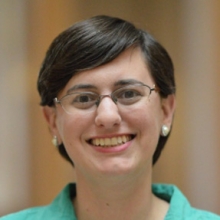Diversity in the Stacks aims to build library collections that represent and reflect the University’s diverse population.
Librarians who work in Latin American studies once had to clear many obstacles in their quest to find the books, journals, and other publications that represented the intellectual production of the region. In 1956 a group of them, most from university libraries, got together in Chinsegut Hill, Florida, to address the tasks of finding, selecting, and processing materials for their collections. They have met every year since under the acronym SALALM—the Seminar on the Acquisition of Latin American Library Materials.
When the Penn Libraries joined SALALM in the early 1990s, the collaborative project had already developed a few important initiatives. For example, libraries worked together to fund the microfilming of primary research documents from Latin America that then became available to the participating institutions. SALALM also helped develop a core of book sellers from all over the Americas that reliably provided libraries with books and other materials.
Additionally, the members of SALALM sought new ways to collaborate and expand the diversity of their Latin American collections. Over time, librarians realized that their institutions were acquiring many of the same books. While there certainly were works of such significance that every large library would want to secure copies, the increasing sophistication of interlibrary loan systems meant that not every library needed to have a copy of every "major" book. Additionally, members of SALALM believed research libraries needed to better reflect the diversity of Latin American research.
With the goal of diversity in mind, librarians came together to launch the Latin American Research Resources Project (LARRP). With backing from the Center for Research Libraries, this project initiated several cooperative ventures, including its Distributed Resources undertaking, which asked its 35 member libraries to set aside 7% of their annual budgets to devote to a particular subject area or format (e.g., books, sound recordings, videos). This collective reallocation of funds easily diverts more than $170,000 per year among the 35 members to expand the range of Latin American collections.
The LARRP was a wonderful opportunity for Penn that suited both the Libraries’ budget allocations and collecting interests. The Penn Libraries decided to focus its Latin American collecting on ethnohistory, folklore, migration, public health, and music sound recordings. These new holdings support the continued legacy of research into the ethnohistory of Mexico that includes the Penn Museum’s collections related to Mesoamerica and the Libraries’ materials documenting Indigenous languages, the history of colonial Mexico, and the imposition of Spanish rule over the Indigenous population. Penn also had a long commitment to folklore studies, and the Distributed Resources program has led to the development of a distinctive collection that features works on the festivals, carnivals, foods, and religious practices of Latin America.
The Distributed Resources program also gave the Penn Libraries the opportunity to acquire several sound recordings from Brazil and Central America that are difficult to find in the United States. While recordings from Brazil are not currently collected, the Libraries’ collections now include a few dozen CDs from the prestigious Biscoito Fino label featuring artists such as Chico Buarque, Rita Lee, Maria Bethânia, Cartola, and Tom Jobim. The Libraries also continues to acquire musical recordings from Central America, a collection that currently includes more than 100 recordings of folk, experimental, popular, and Indigenous music.
Today the Penn Libraries’ collections reflect the needs of Penn’s Latin Americanist community more than ever before. By participating in the Distributed Resources program, the Libraries supports fascinating interdisciplinary research efforts, including a recent project undertaken by the Center for Latin American and Latinx Studies (CLALS), “Dispossessions in the Americas: The Extraction of Bodies, Land, and Heritage from La Conquista to the Present.” While Penn librarians will continue to tweak collecting decisions depending on the needs and interests of students and faculty, their essential profile has already been established.
Here are just some of the materials collected as part of these efforts.
Books
- Conflictos y Alianzas Entre Tlatelolco y Tenochtitlán, Siglos XII a XV by Ana Garduño.
- Formas Tradicionales de la Comunicación en Oaxaca, Estefanía Guadalupe Luna Montero, editor.
- Diversidad Religiosa en el Perú: Miradas Múltiples, Catalina Romero, editor.
- Inventário das Festas e Eventos na Baía de Todos os Santos by Fátima Tavares, Carlos Caroso, Francesca Bassi, and Cleidiana Ramos
- La Mujer Indígena Chamula Y Su Cocina: Recetario (Batsí Ants Xchi'uk Spasob Ve'lil), by Susana del Carmen Bolom Martínez, Martín Villalobos de la Cruz, and Leonardo Vázquez Galdámez, with contributors Jackeline Guadalupe Cancino Escobar and Rodrigo Juárez Nuñez. Translated by Domingo Gómez Castellanos.
- Lin Toochtli Waan Iin Teekwaani (El Tigre y el Conejo, or The Tiger and the Rabbit) by José Antonio Flores Farfán, Spanish translation by José Antonio and English translation by Adam Critchley.
- X-Teya, u Puksi'ik'al Koolel (Teya, un Corazón de Mujer) by Marisol Ceh Moo.
- Dxiokze xha... Bene Walhall/Gente del Mismo Corazón: Novela Bilingüe by Javier M. Castellanos.
- Cibercandomblé: As Convergências de um Rito Pós-Moderno by Camilla Ramos dos Santos.
Audio Recordings
- Viva Cartola!: 100 Anos, Cartola
- Gil Luminoso, Gilberto Gil
- Balacobaco, Rita Lee
- Pixinguinha e Seu Tempo, Pixinguinha
- Brasileirinho, Maria Bethânia

The Penn Libraries’ Latin American studies materials cover topics like ethnohistory, folklore, migration, and public health, and include both books and music sound recordings.
